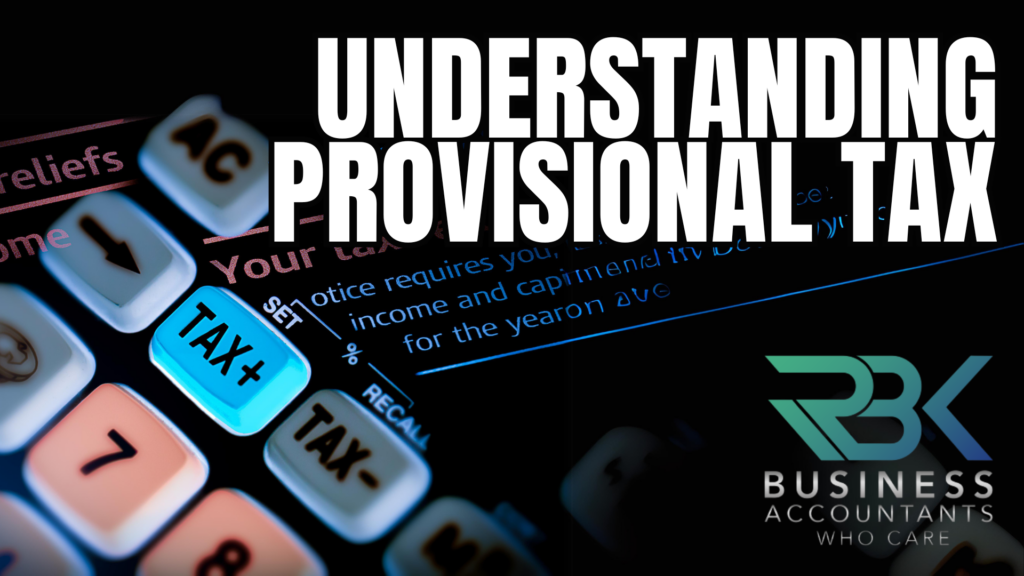As a business owner, understanding your tax obligations is crucial for maintaining the financial health of your company.
One of these obligations is provisional tax. This blog post will help you understand what provisional tax is, who needs to pay it, how it’s calculated, and the important deadlines and penalties involved.
What is Provisional Tax?
Provisional tax is a method of paying your taxes in advance, to avoid a large tax debt at the end of the year. This system helps businesses and certain individuals manage their tax liabilities by spreading payments throughout the year and of course, helps SARS with their “cashflow”
Who are Provisional Taxpayers?
You are considered a provisional taxpayer if:
-
- You earn income other than a salary, such as from a business or freelance work.
-
- You are a company.
-
- You receive income from interest, dividends, rental properties, or other non-salary sources.
When Are Provisional Tax Returns Due?
Provisional tax returns are due twice a year:
-
- First Period: 31st August.
-
- Second Period: 28th/29th February (end of the tax year).
There is also an optional third payment, which can be made before the end of September if the first two payments were underpaid.
How is Provisional Tax Calculated?
Provisional tax is calculated based on an estimate of your total taxable income for the year:
-
- First Payment (31st August): Based on estimated taxable income for the first six months.
-
- Second Payment (28th/29th February): Based on estimated taxable income for the full year, minus the first payment.
-
- Third Payment (optional, before the end of September): To correct any shortfall from the first two payments.
Deadlines and Penalties
It’s crucial to meet the deadlines to avoid penalties:
-
- Late Submission: Failing to submit your provisional tax return on time can result in penalties.
-
- Late Payment: Payments made after the deadline incur a 10% penalty.
-
- Interest Charges: Late payments also attract interest charges.
-
- Underestimation Penalty: If you underestimate (declare less than what is actually owed to SARS) you may incur an underestimation penalty of up to 20% of the amount you “short-paid”.For example, if you declare R100 000 of tax payable but your actual taxes amounted to R500 000 then you will pay 20% of the shortfall (R500 000-R100 000). That is R80 000 in penalties. That is simply giving money away.
Consequences of Late Payments and Underestimates
Late payments and underestimates can significantly impact your financial standing. Penalties and interest charges add to your tax liability, making it more challenging to manage your finances. It’s essential to estimate your income as accurately as possible and ensure timely payments.
Final Thoughts
Provisional tax is an essential part of managing your business’s tax obligations. By understanding your responsibilities, meeting deadlines, and accurately estimating your income, you can avoid penalties and interest charges. If you have any questions or need assistance with your provisional tax returns, don’t hesitate to contact us. We are here to help you navigate the complexities of tax compliance.
For further assistance and expert guidance, reach out to our team. We are dedicated to helping you stay compliant and avoid unnecessary penalties.
























